
Public Decency in Saudi Arabia refers to the set of behaviors and manners that reflect the values, principles, and identity of society, in accordance with the foundations and tenets stipulated in the Basic Law of Governance of the Kingdom of Saudi Arabia . The Principle of Public Decency Public Decency is a principle derived from Arab, Islamic, and universal human values, as well as from Saudi social customs and traditions. While certain authorities are responsible for the legal enforcement of ...

The Product Safety Law is the regulatory framework governing the safety of products available in markets across the Kingdom of Saudi Arabia . It aims to protect consumers by preventing the risks associated with products in the market and clarifying the approach to handling hazards related to these products. Issuance of the Product Safety Law The Product Safety Law was issued by Royal Decree on August 4, 2024, and by a Council of Ministers decision on July 30, 2024. It consists of thirty-seven a...
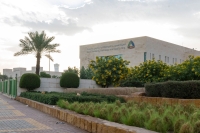
The Standards and Quality Law is a set of legal rules and procedures that establish a general framework for standardization and quality in the Kingdom of Saudi Arabia . It was issued on August 4, 2024, and consists of twenty-four articles. The Saudi Standards, Metrology, and Quality Organization (SASO) serves as the supervisory and reference authority responsible for all standardization and quality activities, except for products and services under the jurisdiction of the Saudi Food and Drug Au...
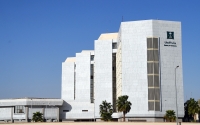
The Commercial Mortgage Law in the Kingdom of Saudi Arabia is one of the legislative laws on commerce promulgated by the Council of Ministers . It seeks to foster the bond market in Saudi Arabia, create ideal conditions for improving the access of commercial establishments to funding, and ensure that asset owners benefit from the inherent value of such assets, ultimately achieving a positive impact on the business environment and contributing to enhancing Saudi Arabia's credit rating and p...
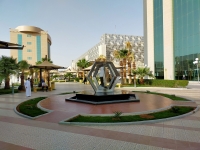
The Law for Medical Cities and Specialized Hospitals Affiliated with the Ministry of Health is a law promulgated by a resolution issued by the Council of Ministers of the Kingdom of Saudi Arabia, on March 24, 2014. It consists of twelve articles. The Law for Medical Cities and Specialized Hospitals Affiliated with the Ministry of Health sets forth the objectives of medical cities and specialized hospitals, the method of forming the Health Services Council, its mandate and meetings, the method o...
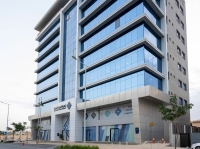
The Real Estate Brokerage Law is a set of legal rules regulating the brokerage of real estate deals, including via online brokerage, in exchange for a commission. It also governs real estate services, which are activities related to real estate, its marketing, management, sale, sale of its usufruct, and lease in the Kingdom of Saudi Arabia . Contents of the Real Estate Brokerage Law The Real Estate Brokerage Law comprises twenty-four articles. It includes the definitions, objectives of the law,...
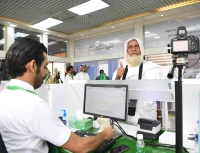
The Law of Transporting Pilgrims to the Kingdom of Saudi Arabia and Returning Them to Their Countries represents a set of legal rules regulating entities transporting pilgrims. It sets out the duties and obligations of the entities transporting pilgrims from and into the Kingdom . It also prescribes the sanctions imposed upon those violating the Law of Transporting Pilgrims and identifies the competent authority for applying these sanctions. Historical overview of the Law of Transporting Pilgri...

It is a monthly salary disbursed by the General Organization for Social Insurance (GOSI) in the Kingdom of Saudi Arabia, on behalf of the employer, in favor of working women during periods of absence due to childbirth, in accordance with the provisions of the new Social Insurance Law , adopted by the Council of Ministers on July 3, 2024. It aims at empowering working women, helping them resume work, and loosening the burden on enterprises. The compensation is disbursed in favor of subscribed Sa...
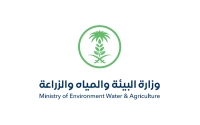
The Executive Regulations for Air Quality in the Kingdom of Saudi Arabia are regulations adopted by the Ministry of Environment, Water, and Agriculture on May 6, 2021. Implementation began in accordance with Article Forty-Eight of the Environmental Law, issued by Royal Decree on July 10, 2020. These regulations address all factors surrounding living organisms, nature, and materials used or emitted from various sites, aiming to protect public health and the environment, which has faced challenge...
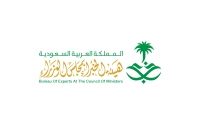
The Law of Saudi Decorations issued in 2013 details their types and the figures to be awarded — Article One stipulates that the decorations are awarded by Royal Orders to kings, heads of state, and national and international civil and military figures to honor them, recognize their work, commemorate important events, or record national events. According to Article Sixty-Four of the Basic Law of Governance, only the king may bestow Saudi decorations, which vary in degrees of merit. According t...
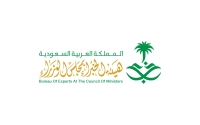
The Succession Commission Law consists of twenty-five articles that regulate the formation of the Succession Commission, the process of pledging allegiance to the King, and the selection of the Crown Prince in the Kingdom of Saudi Arabia. The law was issued in 2006, amending Paragraph 'c' of Article Five of the Basic Law of Governance, which originally stated, 'The King selects and relieves the Crown Prince by Royal Order,' to read, 'The call for pledging allegiance to ...
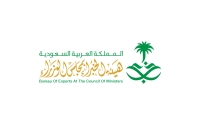
Social security in the Kingdom of Saudi Arabia is a law that aims to address poverty and offer financial support to citizens and the like to enhance their livelihood. This is achieved by estimating the minimum resources required to meet their basic needs and disbursing them in their favor. It also seeks to enable individuals to achieve financial independence, upon qualifying them, while also outlining mechanisms for assisting affected parties in the case of disasters or crises. Social security ...